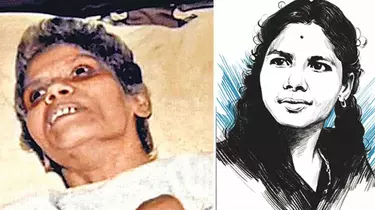Lagatar24 Desk
New Delhi: In a powerful statement during the hearing of the recent Kolkata rape-murder case, Chief Justice of India (CJI) DY Chandrachud referenced the harrowing 1973 Aruna Shanbaug incident to underscore the persistent violence faced by women in the medical profession. CJI Chandrachud stressed that ingrained patriarchal biases make women, particularly female doctors, more vulnerable to such violence, emphasizing that the nation cannot afford to wait for another tragedy before taking decisive action.
The Aruna Shanbaug Case
Aruna Shanbaug was a 25-year-old nurse at Mumbai’s KEM Hospital when her life was tragically altered on November 27, 1973. Engaged to marry a fellow doctor at the hospital, Aruna was brutally assaulted by a ward attendant, Sohanlal Bharta Walmiki. In a heinous act of violence, Walmiki sexually assaulted her and strangled her with a dog chain, causing severe brain damage. This assault left Aruna in a persistent vegetative state (PVS) for 42 years, until her death in 2015.
The damage to her brain stem left Aruna completely paralyzed, unable to communicate, and dependent on others for even the most basic needs. For over four decades, the staff at KEM Hospital cared for her, treating her as part of their family. Aruna’s case sparked a national debate on euthanasia when journalist Pinki Virani filed a petition in the Supreme Court in 2011, seeking permission for her euthanasia.
The Legal Battle
Pinki Virani’s petition argued that Aruna, incapable of experiencing life meaningfully, should be allowed to die with dignity. The Supreme Court, in a landmark ruling on March 7, 2011, rejected the plea for active euthanasia but permitted the possibility of “passive euthanasia”—the withdrawal of life support in certain cases. The court ruled that life support could be legally withdrawn if the request was made by close family members or caretakers and approved by the courts.
Death and Aftermath
Aruna Shanbaug passed away on May 18, 2015, after contracting pneumonia. Her attacker, Walmiki, was convicted only of robbery and attempted murder, serving a mere seven-year sentence due to the lack of legal provisions at the time for recognizing sodomy as rape.
CJI Chandrachud’s reference to this case during the Kolkata hearing serves as a stark reminder of the systemic violence faced by women, particularly in professions like medicine, and the urgent need for societal change.







